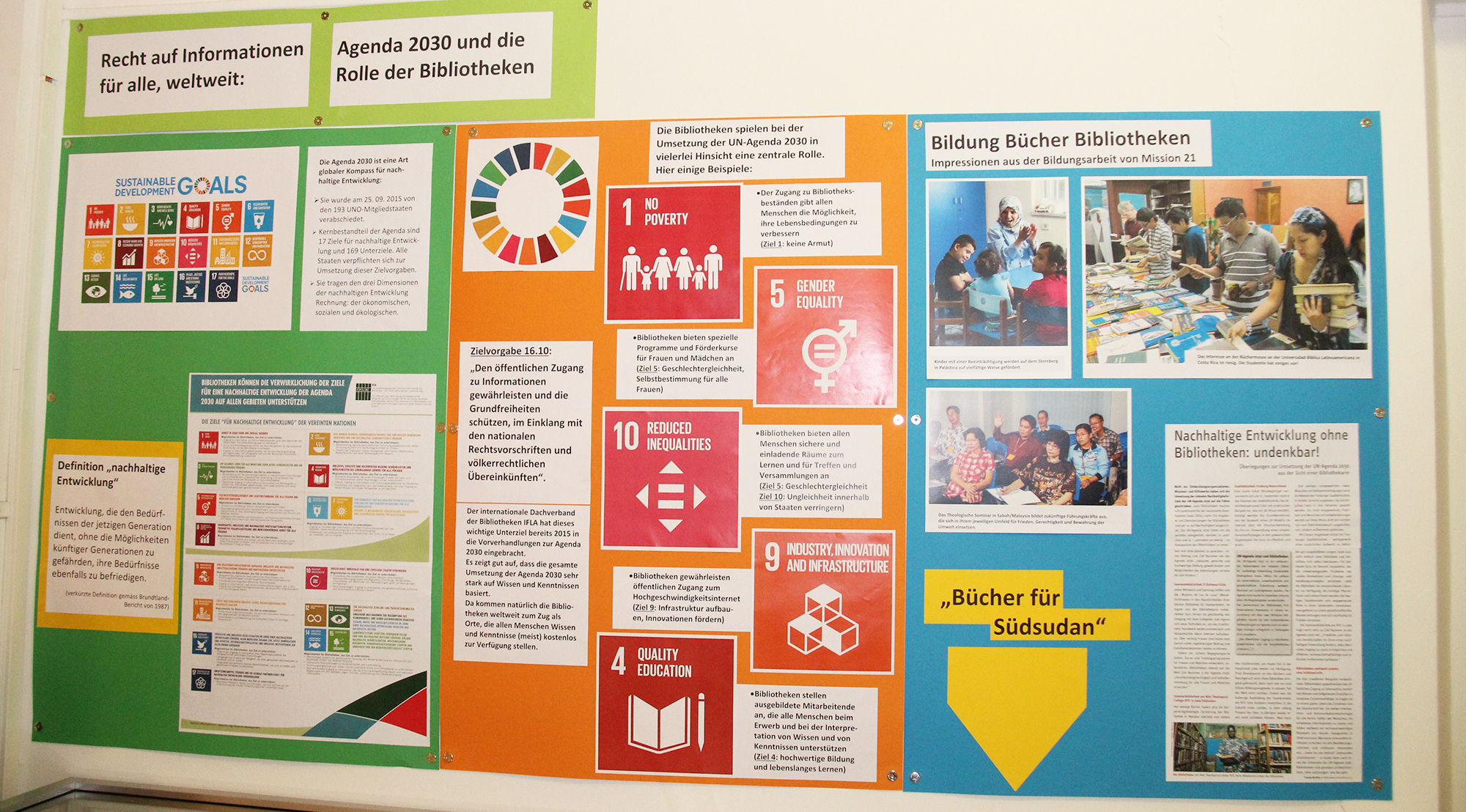If the UN 2030 Agenda were to be implemented successfully, then people all around the world would have unimpeded access to knowledge and information. Libraries worldwide play a key role in this. The Mission 21 specialist library is championing Goal 16.
Target 16.10
With over two million members, the International Federation of Library Associations was able to establish an important approach towards achieving Target 16.10 during preparatory negotiations for the 2030 Agenda: “Ensure public access to information and protect fundamental freedoms […]”.
Libraries impart knowledge and profound insights into complex interactions and thus contribute to quality of life for the individual and to a peaceful society. They make information technology available to all, provide trained personnel to help people to capitalize on the information received and create a trustworthy network of local branches in towns, cities and the countryside worldwide. They have a unique ability like virtually no other institution to reach all levels of society and to shut no one out.
Books for South Sudan
South Sudan is an area of focus in our small specialist library. It is remarkable how many new publications have recently appeared about the world’s newest state. In June 2018, I showed them to Peter Gai Lual Marrow, the chairman of the South Sudan Council of Churches (a Mission 21 partner church) and an architect of the action plan for peace in South Sudan. We got talking about the importance of education in shaping the future of the country and about access to good study literature for students, for example, for those at the Nile Theological College NTC in Juba, which is educating leaders for the South Sudanese churches as well as teachers. There is a great responsibility on future guarantors of sustainable peace in the country. Peter Gai thinks that it is extremely important to be able to deal with your own history thoroughly. He says that corresponding study literature is needed in well-organized libraries for a new course in social ethics that discusses the country’s problems and provides solution strategies and action plans.
On the ground, unfortunately, the reality is different – however, the seminar library in Malakal that was destroyed during the civil war in 2013 was rebuilt in Juba in 2016.
In the Kakuma refugee camp in Kenya, the South Sudanese students at the Giffen Institute have similar problems – good books are in short supply and they can only dream about a stable Internet connection.
We could provide some relief by acquiring here in Basel the books selected by Peter Gai for both seminar libraries and then arranging for intermediaries to bring them to their destinations.
A drop in the ocean? Yes, of course, but it’s also true that constant (peaceful) dripping fills the ocean (the action)!


